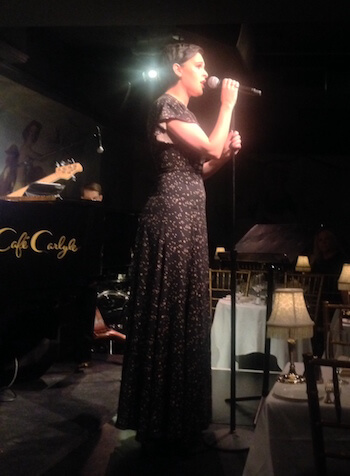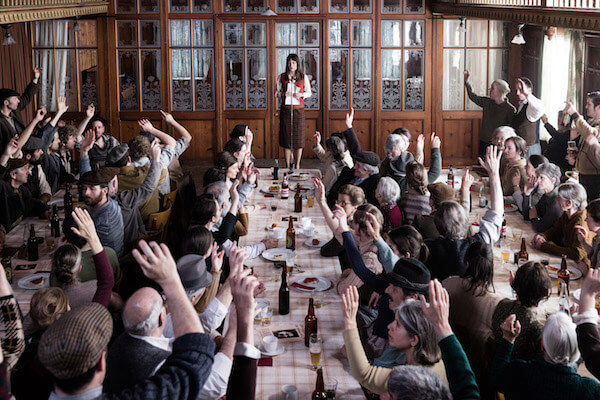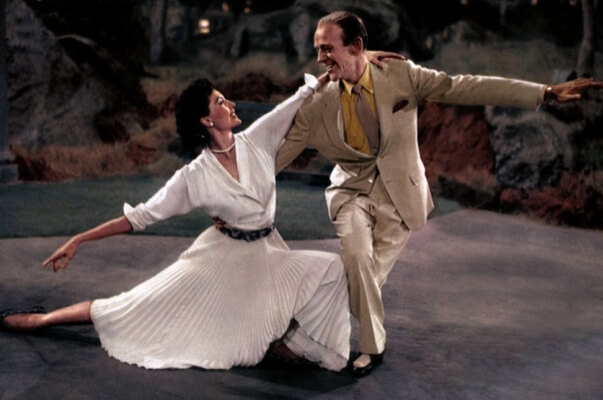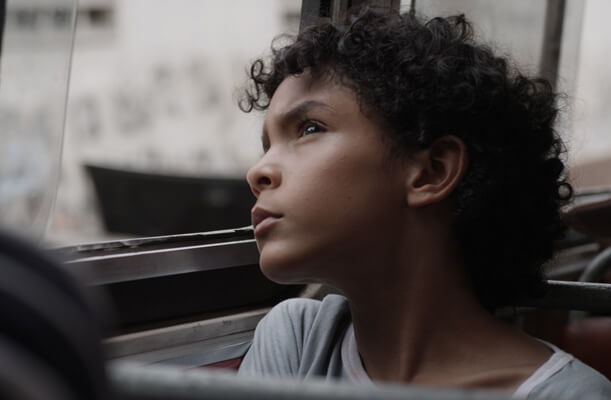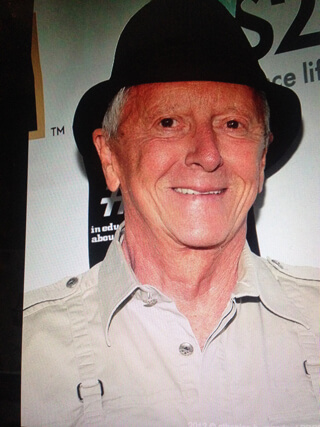There will probably never be another Golden Age of Cabaret as there was in the 1970s, when nearly every block in Manhattan seemed to have at least one boîte where supernovas, almost-stars with cult followings, and unknowns alike could get up on stage and attempt to bring an audience to its knees through the art of song. It was part of the fabric of everyday gay life when I first moved here, with now defunct spots like Reno Sweeney, the Bottom Line, Michael’s Pub, the Cookery, the Grand Finale, the Ballroom, Five Oaks, the Ninth Circle, Upstairs at the Downstairs, Brothers and Sisters, and others offering up everyone from the great Alberta Hunter, Bobby Short, Mel Torme, Sylvia Syms, and Anita O’Day, to an eclectic range of movie stars, including Diane Keaton, Holly Woodlawn, Edie Beale, and Ellen Greene, as well as such near-forgotten talents as Betty Rhodes, Judith Cohen, Jane Olivor, Novella Nelson, and Alaina Reed.
But though the number of establishments has dwindled precipitously, there’s a helluva lot of very special and unique talent alive and kicking around town today — Nellie McKay, Vivian Reed, Annaleigh Ashford, Carole J. Bufford, Aaron Weinstein, Maude Maggart, and more.
At the very forefront is the prodigiously gifted Molly Pope, whom I first discovered through her fiercely belting appearances in Justin Sayre’s deliciously diverting installments of “The Meeting.” She kept popping up, at 54 Below, paying wonderfully brassy tribute to Liza Minnelli with her divinely overwrought “The Singer.” And then, last year, she completely blew me away when she played that ultimate 19th century careerist, Adah Isaacs Menken, in Trav S.D.’s “Horse Play” at La MaMa. Her charismatic effrontery and melting vulnerability proved her considerable acting chops in this superbly funky and literate production, which harked back to downtown Off-Off Broadway’s most original and thrilling roots. Pope reminded me of nothing so much as the very young Bette Midler, both Merman-esque and delicately lyrical, out to conquer show business by any means necessary.
Cabaret stars blossom all over town; a Coward retrospective
Having amassed a considerable, devoted, and very gay following, Pope’s outrageous — and outrageously good — solo shows are now must-see affairs for the most musically discerning as well as the purely fun-loving. And she is a highly candid dream to interview.
“Five minutes after meeting me, you will know the most intimately pressing crisis about to break in my life,” she said. “There’s not a whole lot of filter and in some ways I lack a sense of social customs. That is, I won’t violate your boundaries, but I will force you to cross mine.”
When I remarked how especially attractive and chic she looked, Pope laughed.
“Lately, I’ve gotten super into watching fashion documentaries on Netflix, like the one about Iris Apfel and ‘Dior and I,’” she said. “I also happen to have lost 25 pounds for the first time in my life, which has allowed me, finally at 34, to dress how I want to and not to flatter my figure, which is so much cooler. Part of the weight loss was from the stress of my marriage falling apart, moving back to Manhattan to a six-floor walkup, and I started riding my bike again. I realized how important physical activity is to me for my well-being. The McBurney Y is my big splurge, and I go once or twice a week to yoga. I love the community feeling, which I get nowhere else, of taking a Zumba class, where I am the youngest person in the room.”
Pope is hilariously funny — and naturally so — and never more than when she’s graphically detailing her adventures in dating on Facebook: “A lot of times I turn it up a notch, stylize it. I have a way with words that can make something that’s not so interesting seem interesting — the whole dating thing, my observations are universal, if you’re gonna be honest about it.
“Unless the guy is a total douche bag, I try to only post things that are from my perspective because I never thought I would be dating again. I was married but now I’m not, so that accounts for the rather fresh but horrified perspective on dating. I think that part of my brain literally shut down when I got married. I thought it was done but now it’s been violently reactivated. It’s been more than a year since my divorce was finalized; we were only married for four years, together for seven total, long enough.
“Oh, that septennial itch! He was a recovering performer, an actor who went back to school to pursue a degree in physical therapy. I had avoided dating actors before him; it’s a bad idea. I love dating people who have some creative pursuit, but I don’t necessarily think it’s a good idea to invite that close a competition.
“Ever since my mom forced me to watch ‘Funny Girl’ when I was about 11 years old, that lyric always stayed with me: ‘To tell the truth, it hurt my pride/ The groom was prettier than the bride.’ I never want my boyfriend to be prettier than I am. I’m very superficial. I dated one guy I thought was really hot and I was miserable because I have a very jealous nature, let’s call a spade a spade.”
Pope grew up near Pittsburgh, “30 minutes away, in the town where the original ‘Dawn of the Dead’ was filmed, that mall. I didn’t get to see a lot of shows so I grew up with a lot of movie musicals, soundtracks, and a lot of the Great American Songbook. I thought I was going to be an Olympic swimmer from when I was four, but when I got to high school I started doing theater, which I never thought I could do before.”
I always look forward to Pope’s bringing down the house at Justin Sayre’s annual “Night of a Thousand Judys,” like when she sang “By Myself” with Garland’s original arrangement, painstakingly discovered, and then written out by hand from a photocopy. She told me, “I spent a lot of my childhood watching Turner Classic Movies with my grandma. What I have done consciously is listen to the way she fits certain notes to certain vowels and try to adapt that to myself because our voices are very similar. I do the same thing with Mary Testa and a couple other singers. If I’m going to sing ‘The Man That Got Away,’ which I’ve only done maybe three times in my life, I hit certain notes in a lot of the same resonant places, because that’s the best way for my voice to do it.
“My largely gay following was purely a function of being in my 20s in New York with this big, low, belting voice that couldn’t get me cast in anything to save my life. So I decided to just sing anywhere I could and most of those places were gay establishments, ‘Mostly Sondheim’ at the Duplex,’ or ‘After Party’ at the Laurie Beechman, and I don’t know how many bars in Hell’s Kitchen, this great tradition of nightlife where you’re literally putting on your makeup in a stairwell.
“My little girl obsession with Judy coincides with the gay community’s so when I make a very specific joke, gay men know what I’m referencing and laugh. I also think, purely superficially, that gay men are interested in what I’m wearing when I go onstage. I also make the joke — my ardent wish — that I’m an ascendant gay icon, and I’ve thought a lot about the various generally accepted gay icons — the Judy, the Barbra, the Bette, even Cher. What gives them icon status beyond their amazing talent and careers is something that I also have in me. They are all women who are emotionally available, and the physicality of it is the gesture of constantly giving forward to the audience and not watching their back. The juxtaposition of that much fierce, ferocious talent but so much vulnerability at the same time seems to be a common thread among the gay icons. You’re giving so much that you forget to look out for yourself. To a certain tragic and non-tragic extent, nothing is held back, everything is given to you.”
There’s all kinds of great music in town this spring. After Alexa Ray Joel and Rita Wilson, I was a little trepidatious about star relations doing cabaret, but Rumer Willis at the Café Carlyle on April 5 completely won me over — as she did millions with her “Dancing with the Stars” victory — and I haven’t been able to get her out of my mind since. After a shaky, too exposed start with “Maybe This Time,” she really found her groove with some cannily chosen rock compositions, her distinctively husky, throbbing voice flowering particularly on Hozier’s “Take Me to Church.” Even “God Bless the Child,” which, like “Hallelujah,” “Summertime,” and “Amazing Grace,” I rarely want to hear performed again, acquired rich new meaning in her hands, given the fact that in her case the “mama and papa who may have” are Demi Moore and Bruce Willis.
I caught the charmingly unaffected Willis outside on the street afterwards, cadging a quick smoke, congratulated her and also commented on how much, as a child, I loved the books of the woman she was named for by her doll-loving mother, Rumer Godden. “You’re one of the few who even know who she is!” she exclaimed. “Yes, my mom read her books to us and people send me dolls and her books to this day!”
One week later, I was back at the Carlyle for Katherine Jenkins. She’s somewhat of an unknown quantity Stateside, but an immense star in her native UK and around the world. A mellifluous, classically trained mezzo soprano, she hardly needed the mic in the café’s intimate space, and not only sounded like but looked an angel, with her lovely face, tumbling blonde hair, and model’s figure clad in the biggest sapphire gown ever seen on that stage. An exciting “Habanera” was her one operatic selection from an Andrew Lloyd Webber-heavy repertoire of songs, and she was as gracious and down to earth as could be when I met her later. Also greeting her for the first time was actor Ryan Silverman, just back from happily doing Sondheim’s “Passion” with Natalie Dessay in Paris (in English). Silverman is scheduled to sing with Jenkins for the June official UK celebrations of Queen Elizabeth’s 90th birthday.
Special as they were, however, Jenkins and Willis were simply delicious appetizers before the Carlyle main course, which was the debut of Chita Rivera there on April 19 (35 E. 76th St., through Apr. 30; ticketmaster.com). A household accident, which laid her up during the holidays, forced her to postpone this event until now, but, as her sister Lola told me, “She’s indestructible!”
Truer words were never spoken, for the lady was simply on fire, singing her very favorite songs. She looked as magnificently ageless and trim as ever, somehow managing to dance up a storm on the tiny stage. I’d heard her do many of her selections before, but who cares when they included the best moments from “Bye Bye Birdie,” “West Side Story,” “The Rink,” and the equally indestructible “Chicago,” with the star performing them at white heat intensity? She sizzled on “Mas Que Nada,” my favorite of her live songs, and turned Jacques Brel’s “Carousel” into a veritable mini-opera of dramatic passion.
A packed house of swells filled the place with Chita Love — Michele Lee, Rob Marshall, John Doyle, Robert Osborne — but the big thrill for me was sitting with Lola and her two wonderfully warm brothers, watching their utter absorption and adoration of the brilliance of a sister who is, without a doubt, the most vibrantly alive performing legend on the planet.
For all you resolute Anglophiles, Film Forum is doing a Noël Coward retrospective, beginning on May 13 with “The Scoundrel,” a unique urban fantasy from 1935 in which he stars, co-written and co-directed by the great team of Ben Hecht and Charles MacArthur, photographed by the brilliant Lee Garmes. On Sunday, May 15, at 1:20 p.m., I will be introducing Coward’s 1931 patriotic love letter to Blighty, “Cavalcade” (the 20th Century Fox studio vault print, no less). It’s the Oscar-winning, marvelously sentimental, cannily constructed diatribe against war and tribute to the stalwart British family. I knew its talented costume designer, Earl Luick, who lived in Turtle Bay and whose scrupulously researched, beautiful work was so outstanding that it received special mention at the time, which was rare in 1933. (209 W. Houston St., through May 19; filmforum.org/series/noel-coward-series)

